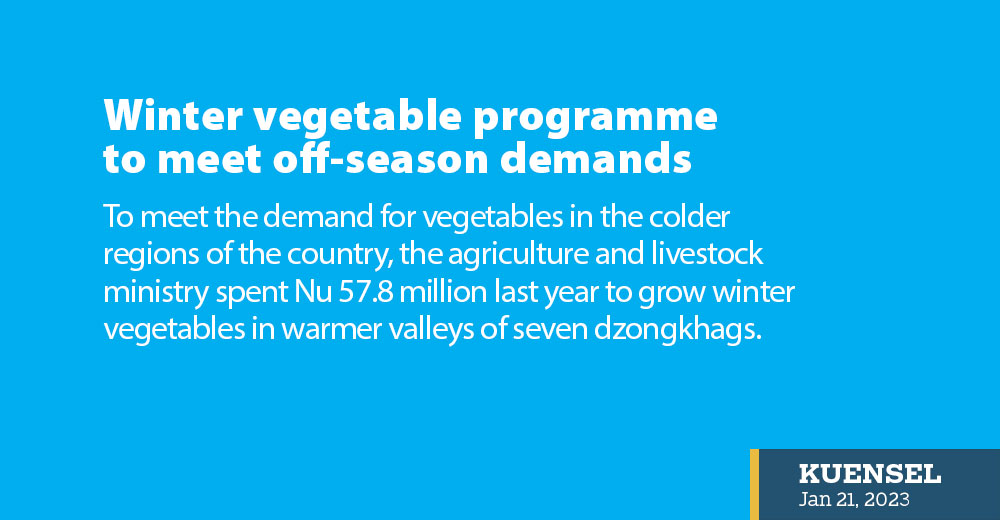Chhimi Dema
To meet the demand for vegetables in the colder regions of the country, the agriculture and livestock ministry spent Nu 57.8 million last year to grow winter vegetables in warmer valleys of seven dzongkhags.
The ministry expects to produce 6,536 metric tonnes (MT) of winter vegetables this season. This year the ministry will spend Nu 57.8 million to grow winter vegetables for the coming winter.
The winter vegetable programme will grow chilli, tomato, onion, cole crop, and beans in Tsirang, Sarpang, Samtse, Samdrupjongkhar, Dagana, Mongar, and Pemagatshel. These dzongkhags would supply surplus production to the northern dzongkhags of the country.
Department of Agriculture (DoA) selected the priority crops based on their food and nutrition value.
An official from DoA said that the department aims to produce the priority winter vegetables to feed the population during winter months sufficiently.
“However, due to climatic conditions and market availability the production of most warm season vegetables is in deficit (chilli, tomato, beans, and onion) while cole crops are sufficiently produced,” the official said.
Winter chilli, tomatoes, beans, cauliflower and cabbage are some vegetables available through the programme in the market.
According to reports, the country’s agriculture system is largely dependent on monsoon rain, which accounts for 60 to 90 percent of annual precipitation. This impacts production during winter causing vegetable shortages in the market.
According to the official, the winter vegetable programme started in 2012 with winter chilli production.
In 2016, with import restrictions on chilli, beans, and cauliflower, the department ‘vigorously’ promoted winter vegetable production, the official said. “From 2020 to 2021, during the pandemic, the government pumped in huge budget support for both winter and summer vegetable production.”
Records with the department show that from 2018 to 2019, a total of 220MT of winter vegetables was produced, and from 2020 to 2021, a total of 6,115MT was produced.
“Winter vegetable growers face huge challenges in winter due to climatic conditions and cheap imports available,” the official said.


